
Sailing in Greece is an irresistible experience for travelers and sailing enthusiasts.
The most popular period to sail in Greece is typically during the summer months, particularly from late May to early September. This timeframe aligns with the peak tourist season in Greece when the weather is warm, the seas are calm, and the islands and coastal areas are bustling with visitors. The months of July and August tend to be the busiest, with warm temperatures and a vibrant atmosphere.
However, the specific popularity can vary based on personal preferences. Some prefer the shoulder seasons (late April to early June or late September to early October) when the weather is still pleasant, the crowds are thinner, and the prices might be more favorable. It's important to consider your tolerance for crowds, your preferred weather conditions, and what you'd like to experience during your sailing trip when choosing the best time for your adventure in Greece.
Favourite destinations in Greece to sail.
Lefkas
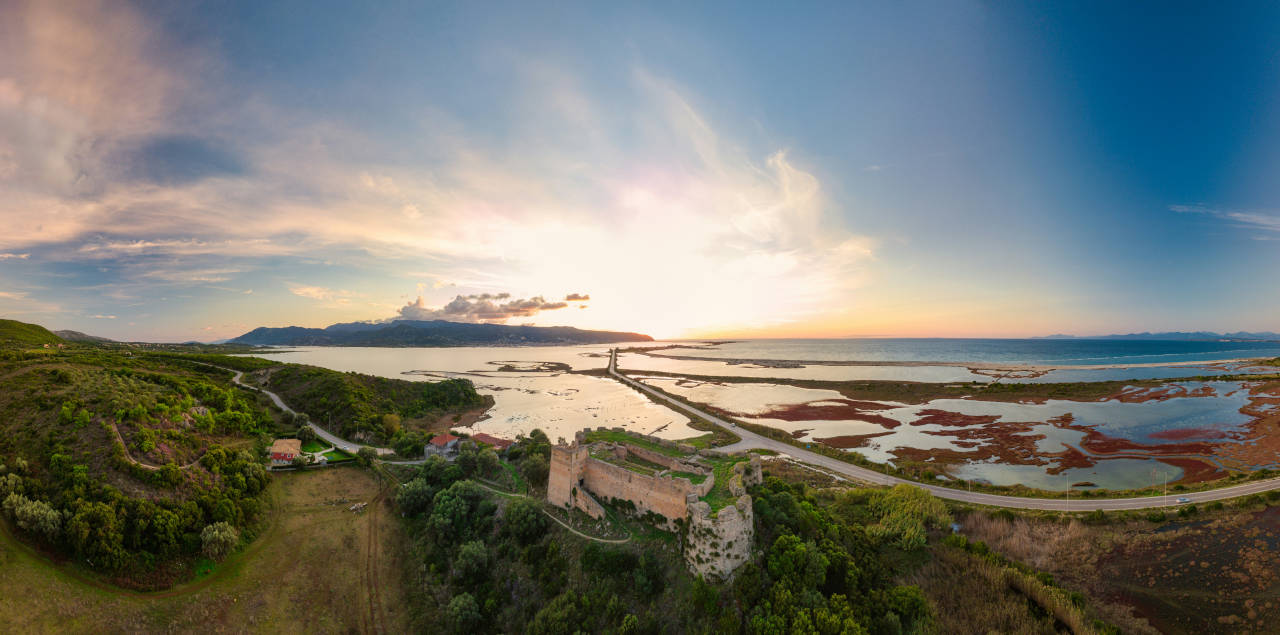
Lefkada, also known as Lefkas, is a popular sailing destination due to its stunning natural beauty, crystal-clear waters, and ideal wind conditions, making it a haven for sailors and water sports enthusiasts. Here are some reasons why Lefkas is a favorite destination to sail:
- **Beautiful Scenery:** Lefkas is blessed with breathtaking landscapes, including pristine beaches, turquoise waters, and lush greenery. The coastline is adorned with cliffs, coves, and caves, providing an incredible backdrop for sailing.
- **Wind Conditions:** The island enjoys consistent winds, especially in the summer months, making it an excellent spot for sailing. The prevailing northwest winds are reliable for sailing activities.
- **Sailing Infrastructure:** Lefkas has well-equipped marinas, such as Lefkas Marina, which offer amenities and services for sailors, including mooring, boat maintenance, and provisions.
- **Access to Nearby Islands:** Lefkas is situated in close proximity to other Ionian islands, such as Meganisi, Kefalonia, Ithaca, and more. This provides sailors with the opportunity to explore and hop between different islands during their sailing trip.
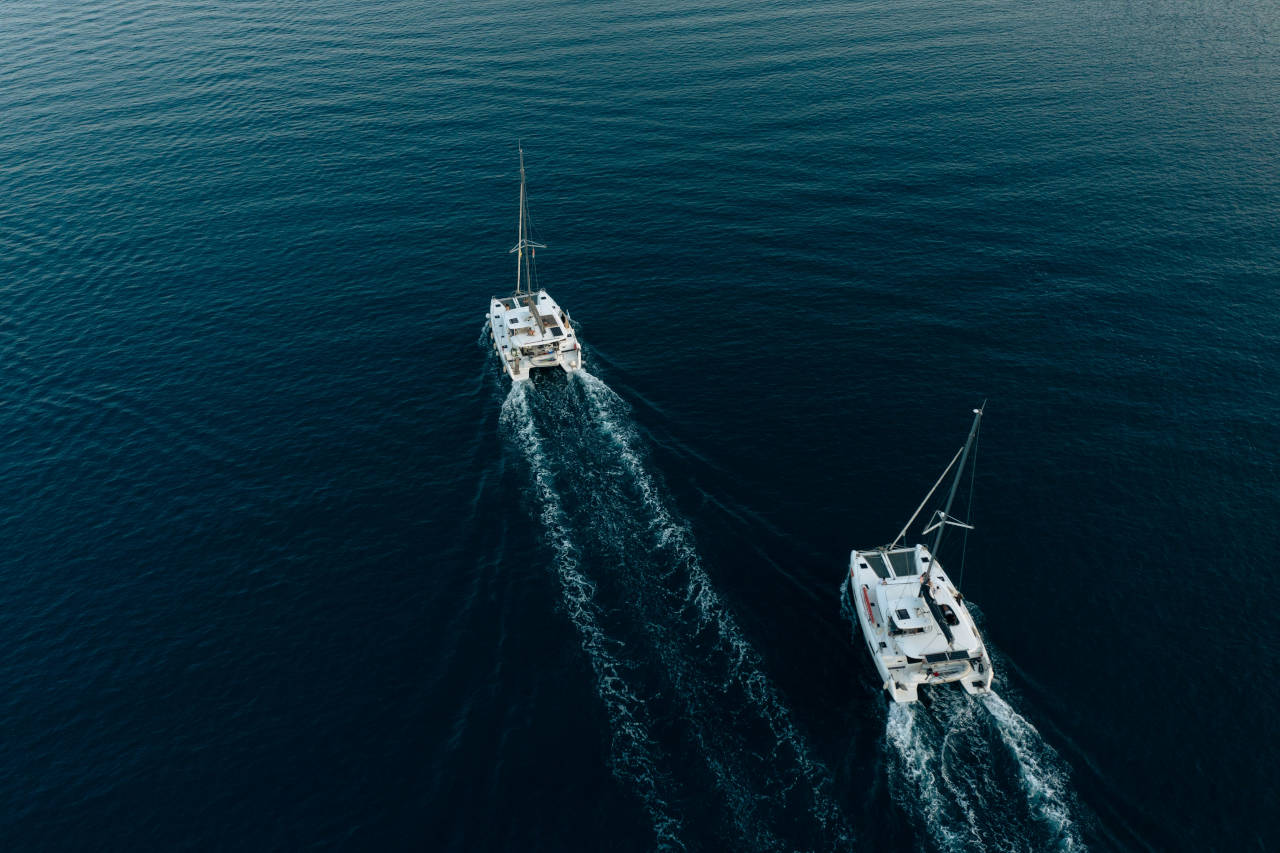
As for things to do in Lefkas:
- **Beach Hopping:** Enjoy the various beaches on the island, such as Porto Katsiki, Egremni, Kathisma, and others, known for their crystal-clear waters and stunning scenery.
- **Watersports:** Apart from sailing, Lefkas offers opportunities for windsurfing, kiteboarding, and scuba diving, allowing visitors to explore the underwater world.
- **Explore the Town:** Visit Lefkas Town, the capital, to explore its charming streets, traditional Greek tavernas, and historical sites like the Agia Mavra Castle.
- **Hiking and Nature Exploration:** Lefkas has beautiful natural landscapes, including waterfalls and lush green hills, offering hiking trails and opportunities to explore its diverse flora and fauna.
- **Local Cuisine:** Indulge in the delicious Greek cuisine at the local tavernas, savoring fresh seafood, local specialties like moussaka and souvlaki, and traditional Greek salads.
- **Cultural Events:** Depending on the time of your visit, you might catch cultural events, music festivals, or local celebrations that showcase the island’s traditions and heritage.
Remember, the island has a lot to offer beyond sailing, allowing visitors to immerse themselves in both nature and culture, making it an ideal destination for a memorable vacation.
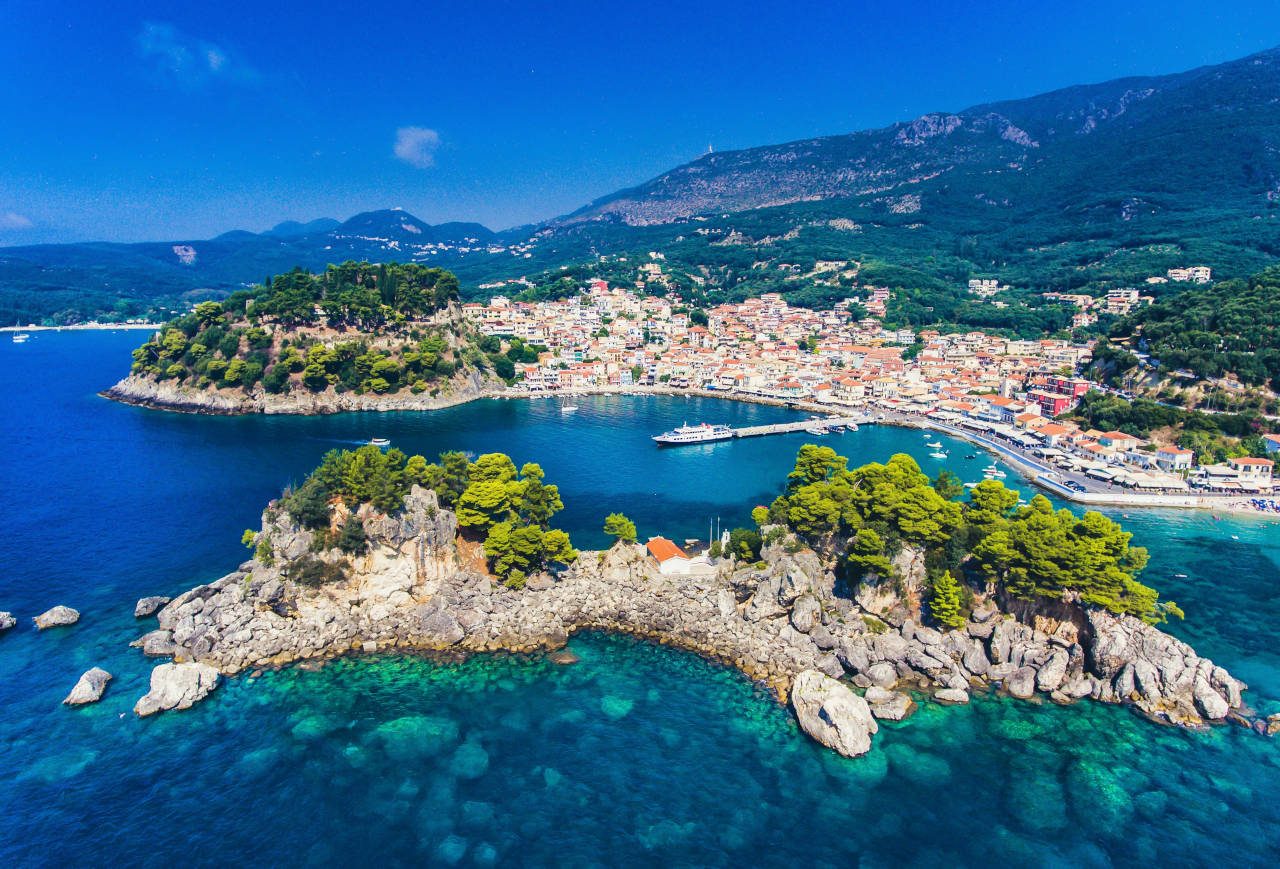
Lavrion
Lavrion, a port town located in southeastern Attica, Greece, has gained popularity as a sailing destination for several reasons:
- **Proximity to the Cyclades:** Lavrion serves as a gateway to the Cyclades islands, making it an excellent starting point for sailing adventures in this renowned archipelago. Cyclades islands like Kea, Kythnos, Syros, Mykonos, and more are easily accessible from Lavrion.
- **Sailing Infrastructure:** Lavrion has a well-equipped marina, the Lavrion Port Marina, which provides facilities for sailors, including mooring, maintenance, provisions, and other essential services for boats and yachts.
- **Good Wind Conditions:** The area benefits from favorable wind conditions, particularly during the summer months. The Meltemi winds, which blow from the northwest, are generally reliable for sailing in the Aegean Sea.
- **Historical Sites:** Lavrion is rich in history and boasts archaeological sites like the Ancient Theatre of Thorikos and the nearby Temple of Poseidon at Cape Sounion, providing opportunities for cultural exploration.
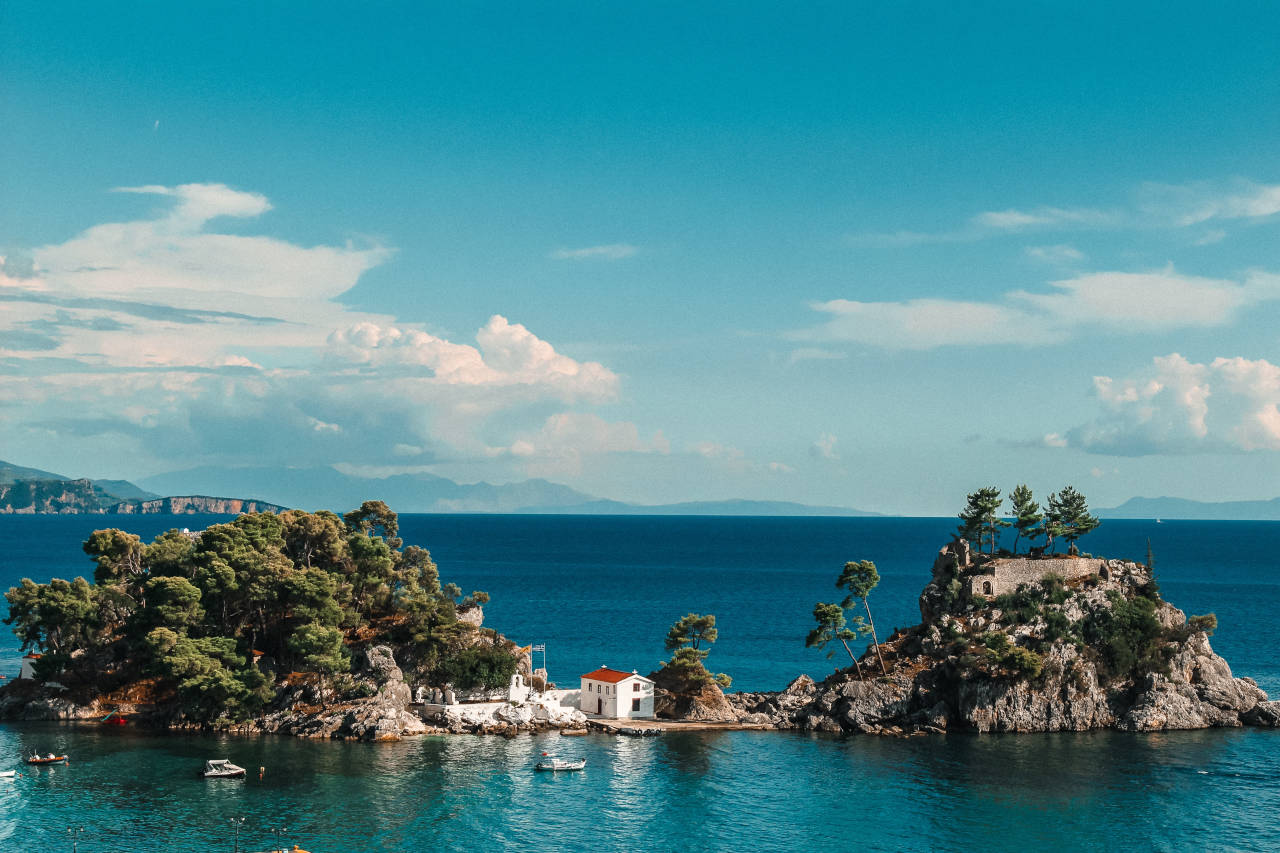
Things to do in Lavrion and its surroundings:
- **Visit the Archaeological Sites:** Explore the Ancient Theatre of Thorikos, one of the oldest in Greece, and the Temple of Poseidon at Cape Sounion, offering stunning views of the Aegean Sea.
- **Enjoy Beaches and Water Activities:** Lavrion and its vicinity have beautiful beaches where you can relax or engage in water activities such as swimming, snorkeling, or diving.
- **Discover Lavrion Town:** Wander through the town's streets, visit local tavernas, and experience the authentic Greek lifestyle.
- **Museum of Lavrion Technological and Cultural Park:** Learn about the area's mining history and cultural heritage at this museum, which displays the region's industrial past.
- **Day Trips to Nearby Islands:** Take day trips or longer sailing excursions to the nearby Cyclades islands, exploring their beautiful landscapes, traditional villages, and stunning beaches.
- **Local Cuisine:** Indulge in Greek cuisine at local restaurants, sampling fresh seafood, traditional Greek dishes, and local specialties.
Lavrion offers a blend of historical charm, natural beauty, and sailing opportunities, making it an enticing destination for those looking to combine sailing adventures with cultural exploration and relaxation.
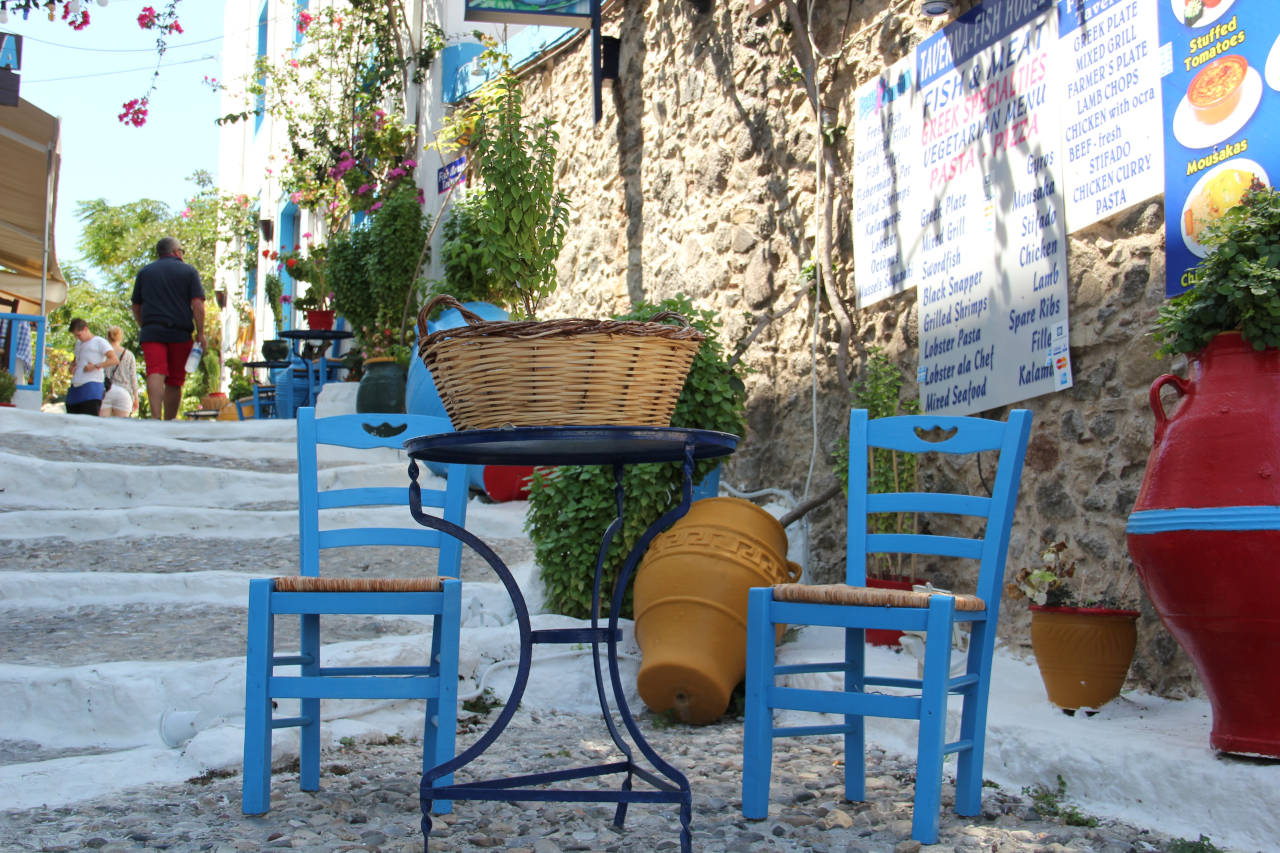
Kos
Kos, one of the Dodecanese islands in Greece, is a favored sailing destination due to various reasons:
- **Nautical Infrastructure:** Kos boasts well-equipped marinas and harbors, such as the Kos Marina, offering mooring, repair services, and other facilities for sailing vessels.
- **Strategic Location:** Situated in the southeastern Aegean Sea, Kos serves as a convenient starting point for sailing trips to explore the Dodecanese islands, including Kalymnos, Rhodes, Symi, and more.
- **Ideal Wind Conditions:** The island benefits from favorable wind patterns, making it an excellent spot for sailing, especially during the summer months. Reliable winds provide a great environment for sailing enthusiasts.
- **Beautiful Coastline:** Kos features a stunning coastline with numerous secluded bays, beaches, and coves that are perfect for anchoring and exploring via sailboat.
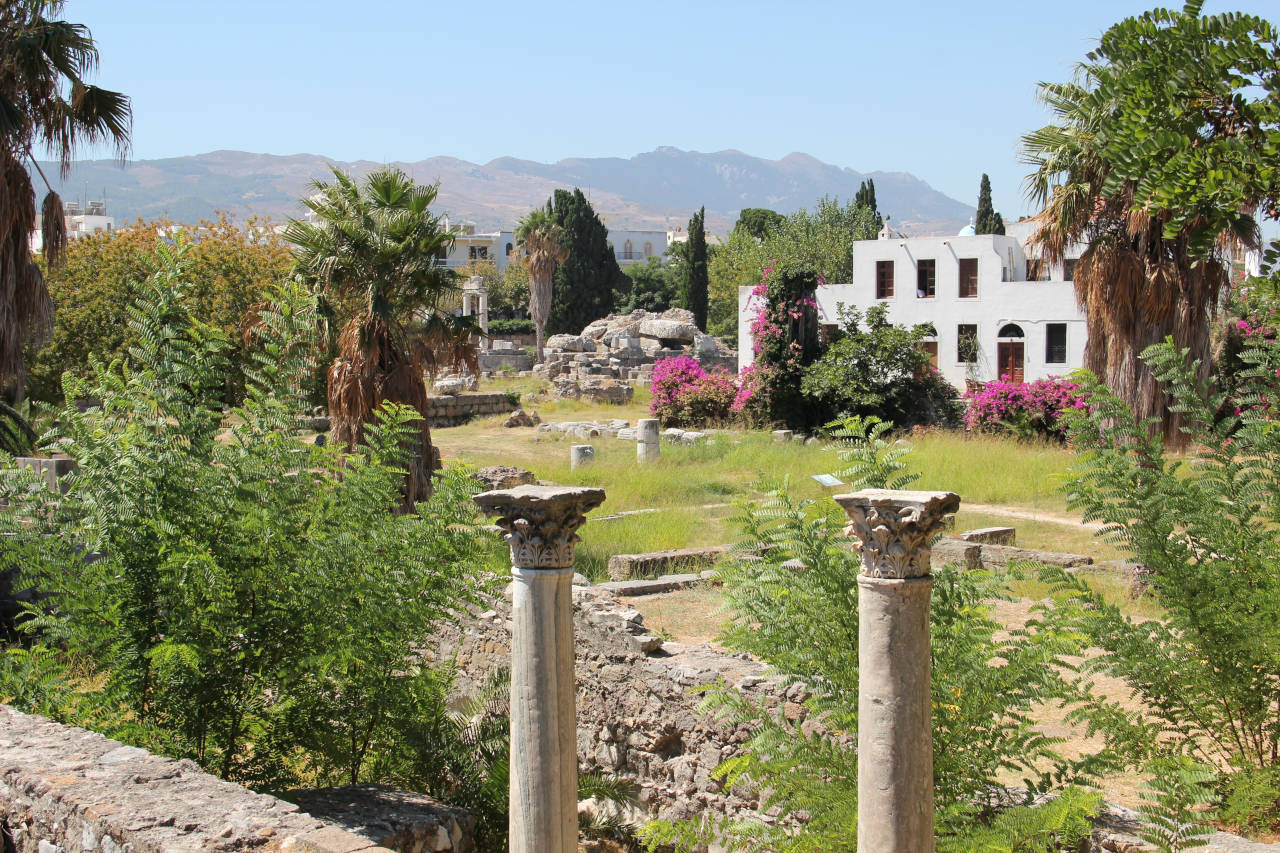
As for things to do in Kos:
- **Historical Exploration:** Visit historical sites such as the Asklepion, an ancient healing center, the Castle of the Knights, and the Ancient Agora of Kos. These sites offer a glimpse into the island's rich history.
- **Beach Activities:** Relax or engage in water sports on the island's beautiful beaches, such as Paradise Beach, Tigaki Beach, and Agios Stefanos Beach.
- **Cycling:** Kos is relatively flat and bike-friendly, making it a great place for cycling. Rent a bike and explore the island's picturesque landscapes and charming villages.
- **Local Cuisine:** Indulge in traditional Greek cuisine at local tavernas and restaurants, savoring fresh seafood, mezes, moussaka, souvlaki, and other local specialties.
- **Nightlife:** Experience the vibrant nightlife in Kos Town, which offers a range of bars, clubs, and entertainment options for visitors.
- **Boat Trips and Excursions:** Take boat tours around the island or join sailing excursions to nearby islets and beaches, offering a different perspective of the island from the water.
Kos provides a balanced mix of historical sites, natural beauty, and leisure activities, making it an appealing destination for sailors and tourists alike, offering both sailing adventures and opportunities for cultural exploration and relaxation.
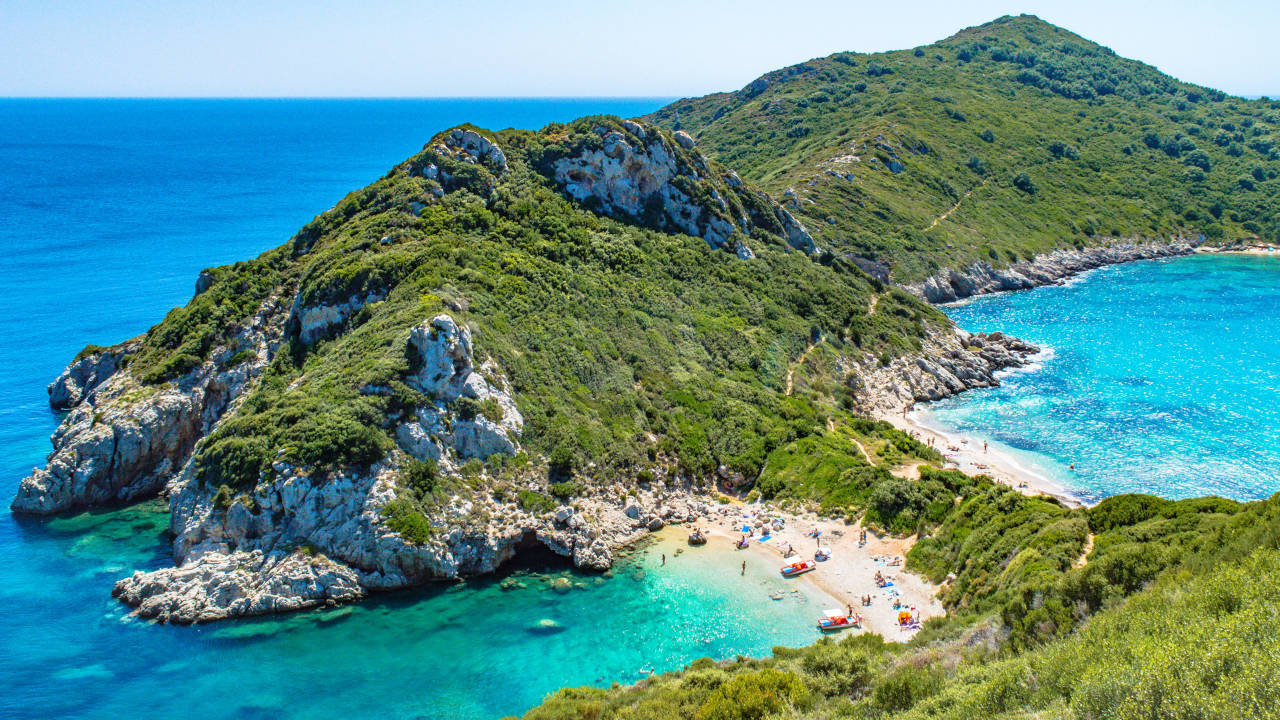
Corfu
Corfu, an enchanting Greek island in the Ionian Sea, is a beloved destination for sailors due to several reasons:
- **Strategic Location:** Corfu's strategic location in the Ionian Sea makes it an excellent starting point for sailing to other nearby Ionian islands such as Paxos, Antipaxos, and Lefkada. The island is also a gateway to the Adriatic Sea and beyond.
- **Sailing Infrastructure:** Corfu has well-developed marinas and harbors, such as the Gouvia Marina, providing mooring, repair services, and various amenities catering to the needs of sailing enthusiasts.
- **Varied Scenery:** The island offers diverse and beautiful landscapes, including stunning coastlines, hidden coves, and lush greenery, creating an ideal backdrop for sailing.
- **Favorable Wind Conditions:** Corfu benefits from consistent and favorable wind conditions, especially during the summer months, making it an excellent spot for sailing adventures.
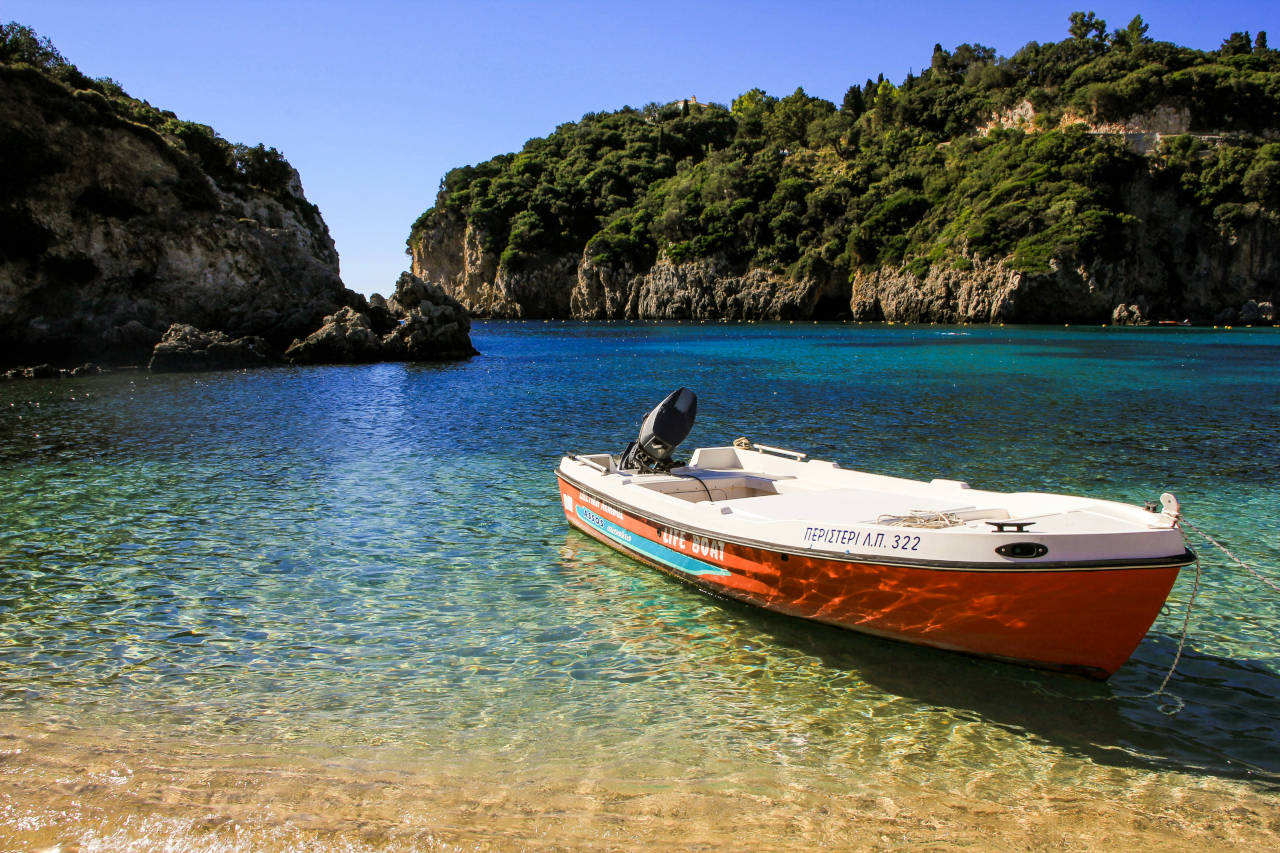
Regarding activities in Corfu:
- **Historical Exploration:** Visit historic sites like the Old Fortress, the Achilleion Palace, and the Old Town of Corfu (a UNESCO World Heritage Site), showcasing a blend of Venetian, French, and British influences.
- **Beach Relaxation:** Enjoy the island's beautiful beaches, such as Paleokastritsa, Glyfada, and Canal d'Amour, for swimming, sunbathing, and water sports.
- **Cultural Experiences:** Wander through the charming streets of Corfu Town, sample local cuisine at traditional tavernas, and explore the vibrant local culture and heritage.
- **Outdoor Activities:** Engage in outdoor activities like hiking, horseback riding, or exploring the Corfu Trail, which offers picturesque walking routes across the island.
- **Local Cuisine:** Delight in the island's gastronomy by tasting traditional Greek dishes, local wines, and olive oils at various tavernas and restaurants.
- **Boat Excursions:** Take boat trips around the island or nearby islets to explore hidden coves, caves, and beaches not easily accessible by land.
Corfu presents a blend of history, natural beauty, and recreational activities, making it an appealing destination for sailing enthusiasts and tourists seeking a mix of sailing adventures and cultural exploration.
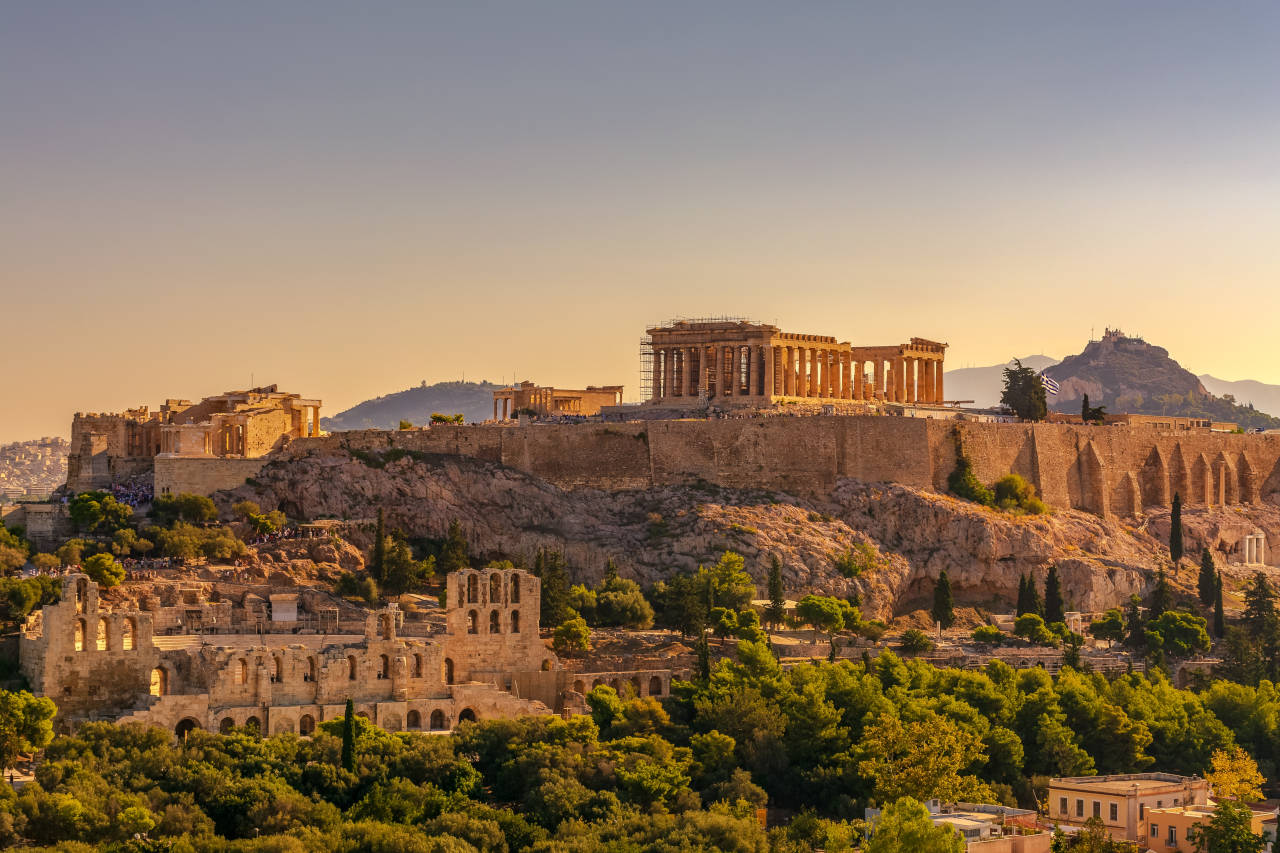
Athens
Athens, the capital of Greece, is not only a historical and cultural hub but also a favored destination for sailing due to several reasons:
- **Sailing Infrastructure:** Athens boasts several marinas, notably the Alimos Marina and the Flisvos Marina, which serve as starting points for sailing trips to the nearby Saronic Gulf and the Greek islands.
- **Proximity to Islands:** Athens is strategically located near the Saronic Gulf, providing easy access to nearby islands like Aegina, Hydra, Poros, and Salamis, offering diverse sailing experiences.
- **Historical and Cultural Significance:** The city of Athens offers a blend of history, art, and culture. Sailing enthusiasts have the opportunity to combine their sailing trip with visits to iconic historical sites, such as the Acropolis, the Parthenon, and other ancient landmarks.
- **Varied Sailing Experiences:** The waters around Athens offer diverse sailing experiences, from coastal cruising to island hopping, making it appealing to both seasoned sailors and those new to sailing.

As for things to do in Athens:
- **Visit Ancient Landmarks:** Explore the Acropolis and its iconic Parthenon, as well as other historical sites like the Ancient Agora, Temple of Olympian Zeus, and the Panathenaic Stadium.
- **Museums and Cultural Sites:** Visit museums such as the Acropolis Museum, National Archaeological Museum, and other cultural sites that offer insight into Greece's rich history and art.
- **Culinary Delights:** Experience the vibrant food scene by sampling traditional Greek cuisine at local tavernas, markets, and restaurants. Don't miss trying souvlaki, moussaka, Greek salads, and more.
- **Shop and Stroll:** Wander through neighborhoods like Plaka, Monastiraki, and Psiri to shop for souvenirs, enjoy the atmosphere of quaint streets, and discover local artisanal crafts.
- **Nightlife:** Athens has a vibrant nightlife scene, offering a variety of bars, clubs, and entertainment options to experience Greek music, dance, and contemporary culture.
- **Outdoor Activities:** Explore the coastal areas of Athens, enjoy beaches along the Athenian Riviera, or partake in outdoor activities like hiking on Mount Lycabettus or coastal walks.
Athens is not just a city with historical significance but also serves as a gateway to fantastic sailing experiences and offers a wealth of activities for visitors seeking a rich cultural experience intertwined with sailing adventures.
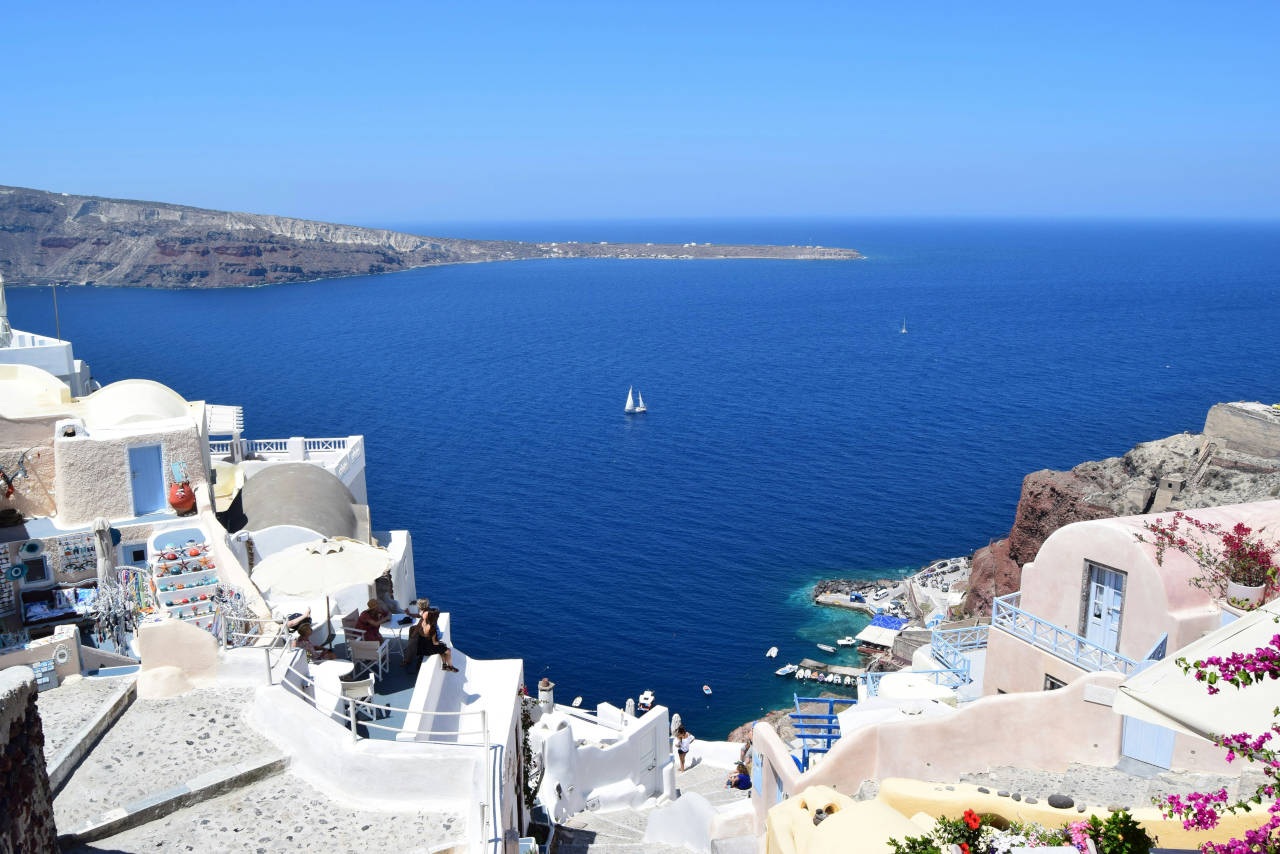
Useful information for yacht charters in Greece.
When planning a yacht charter in Greece, several crucial pieces of information should be considered to ensure a smooth and enjoyable sailing experience:
- **Choose the Right Time:** Greece has a sailing season that typically runs from April to early November. The peak season is from mid-June to early September, but shoulder seasons (May and October) can offer pleasant weather and fewer crowds.
- **Select the Ideal Route:** Greece offers various sailing routes. The Cyclades, Saronic Gulf, Ionian Islands, Dodecanese, and Sporades are popular sailing destinations. Research and select the route that aligns with your preferences and level of sailing experience.
- **Yacht Type and Size:** Choose the appropriate yacht size and type according to the number of people in your group and your sailing skills. Options include monohulls, catamarans, and luxury yachts.
- **Skipper or Bareboat Charter:** Decide if you want to charter a boat with or without a skipper. If you're not experienced in sailing, hiring a professional skipper is advisable for safety and a stress-free trip.
- **Marinas and Ports:** Familiarize yourself with the major marinas and ports in Greece. Essential marinas include Alimos Marina in Athens, Lefkas Marina in Lefkada, Gouvia Marina in Corfu, and more, depending on your sailing route.
- **Weather and Sailing Conditions:** Understand the weather patterns, prevailing winds, and sailing conditions in the specific area you plan to sail. The Meltemi wind in the Aegean, for instance, can be strong in some areas during the summer.
- **Sailing Licenses and Requirements:** Ensure you have the necessary qualifications and licenses if you plan to sail without a skipper. Greece might require specific certifications, depending on the boat size and type.
- **Itinerary and Anchorages:** Plan your itinerary and research anchorages, harbors, and bays along your route. Some islands and coastal areas might have limited mooring spots or restrictions.
- **Provisions and Supplies:** Plan your provisions and supplies for the journey, considering that some remote areas might have limited access to stores and facilities.
- **Local Regulations and Customs:** Familiarize yourself with local maritime regulations, customs, and traditions in Greece. Each area might have specific rules and etiquette to follow.
- **Emergency Contacts and Services:** Have a list of emergency contacts, including local authorities, coast guard, and the charter company, and be aware of the nearest medical facilities and emergency services.
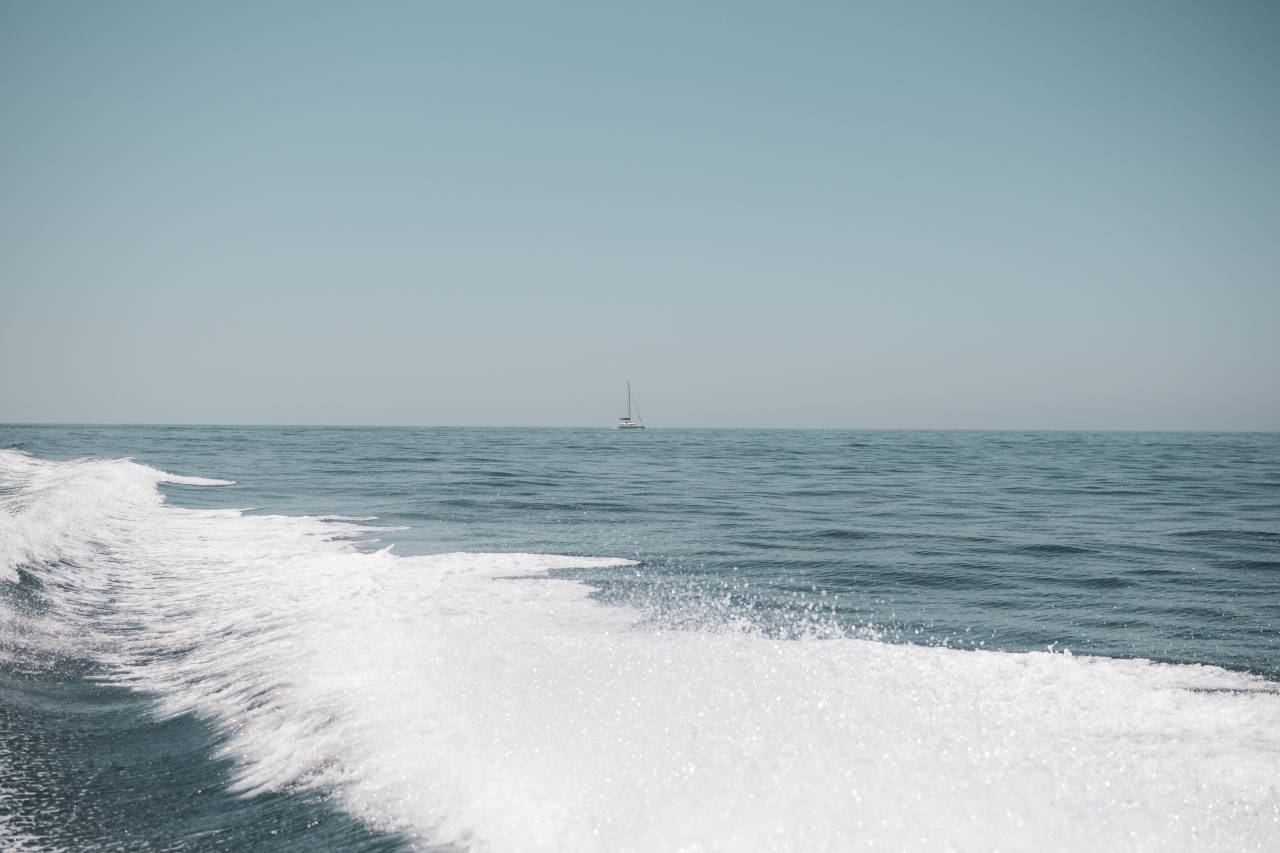
How is the wind conditions in Greece when sailing?
In Greece, wind conditions play a significant role in sailing, and they can vary across different regions and seasons. Here are some key aspects of wind conditions in Greece for sailing:
- **Meltemi Winds:** The most notable wind pattern in Greece is the Meltemi, a strong and dry northerly wind that typically blows in the Aegean Sea during the summer months. It usually starts in late May or early June and can last through the summer, especially peaking in July and August. The Meltemi originates from the north or northwest and can bring strong gusts, usually ranging from 15 to 25 knots, occasionally reaching up to 35 knots or more. While great for sailing, the Meltemi can be powerful and sometimes challenging, especially in exposed areas.
- **Local Winds:** Different regions in Greece might experience varying local winds. For instance, the Cyclades islands are known for the Meltemi winds, while the Ionian Islands have more predictable and milder winds. The Ionian islands typically experience lighter and more consistent winds compared to the Aegean.
- **Wind Directions:** Winds in Greece can come from different directions, but the prevailing summer winds in the Aegean, like the Meltemi, tend to blow from the north or northwest. Other winds, such as the Etesians, can also be present, blowing from the northeast or east.
- **Calm Periods:** While the summer months often bring reliable wind for sailing, there might be periods of calm, especially during early mornings and late evenings. During these times, the winds might be light, offering peaceful conditions for sailing.
- **Navigational Considerations:** The Meltemi winds, while generally ideal for sailing, can also create choppy seas and occasionally challenging conditions for inexperienced sailors. Navigating channels and narrow straits during strong wind periods requires caution and proper seamanship skills.
- **Seasonal Variations:** Wind patterns in Greece vary with the seasons. The Meltemi winds are most prevalent during the summer months, especially in the Aegean, while other seasons might have milder and more variable wind conditions.
Sailors planning a trip in Greece should consider wind conditions, local forecasts, and navigational challenges when charting their course. Being aware of wind patterns and planning according to the prevailing conditions can lead to a safe and enjoyable sailing experience in the beautiful waters of Greece.
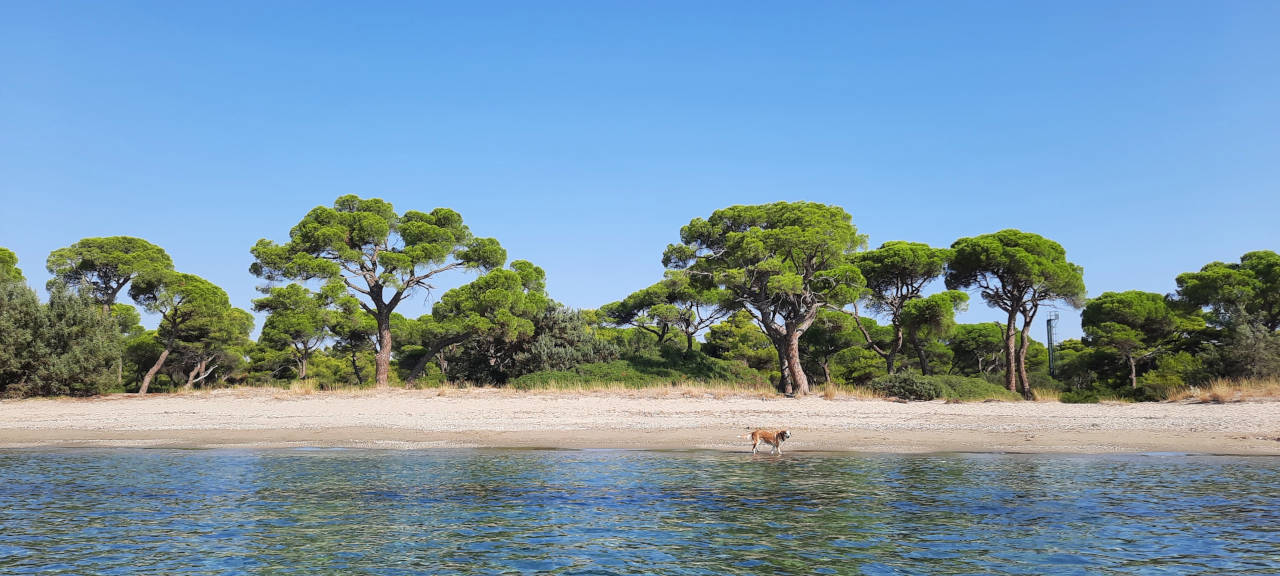
What are the national park fees in Greece
In Greece, national park fees specifically for sailors may vary based on the location and the national park regulations. National parks often encompass protected areas, both on land and at sea, with designated zones for conservation and environmental protection.
As of our last knowledge update in 2023, here are some key points regarding national park fees for sailors in Greece:
- **Marine Protected Areas (MPAs):** Some national parks in Greece include marine zones or Marine Protected Areas (MPAs). These areas might have regulations regarding sailing, anchoring, or accessing specific parts of the sea. Fees for sailing within these protected zones could potentially be applied.
- **Sailing Permits or Mooring Fees:** In certain cases, if sailors are navigating or anchoring within marine national park areas, there might be associated permits or mooring fees. These charges could support conservation efforts, management, or the maintenance of facilities within the marine protected zones.
- **Varying Fees:** Fees for sailors within national parks in Greece can differ significantly based on the area, the specific regulations set by the park authorities, and the services provided (such as mooring facilities, waste disposal, or other amenities).
- **Local Regulations and Enforcement:** It's essential to adhere to local regulations and rules concerning sailing within national parks or marine protected areas. While some areas may have clearly defined fees, others might not charge sailors specifically but may enforce rules for protecting the environment and marine ecosystems.
To get the most accurate and up-to-date information regarding national park fees for sailors in Greece, it's recommended to:
- Contact the specific national park authorities or local harbormasters within or adjacent to the national park areas.
- Check the official websites of the relevant national parks or contact local tourism offices for detailed information on sailing fees, permits, and any regulations applicable to sailors within these areas.
Understanding the regulations, fees, and permits required for sailing within Greece's national parks will help ensure compliance with the rules and support the conservation efforts aimed at protecting the marine environment.
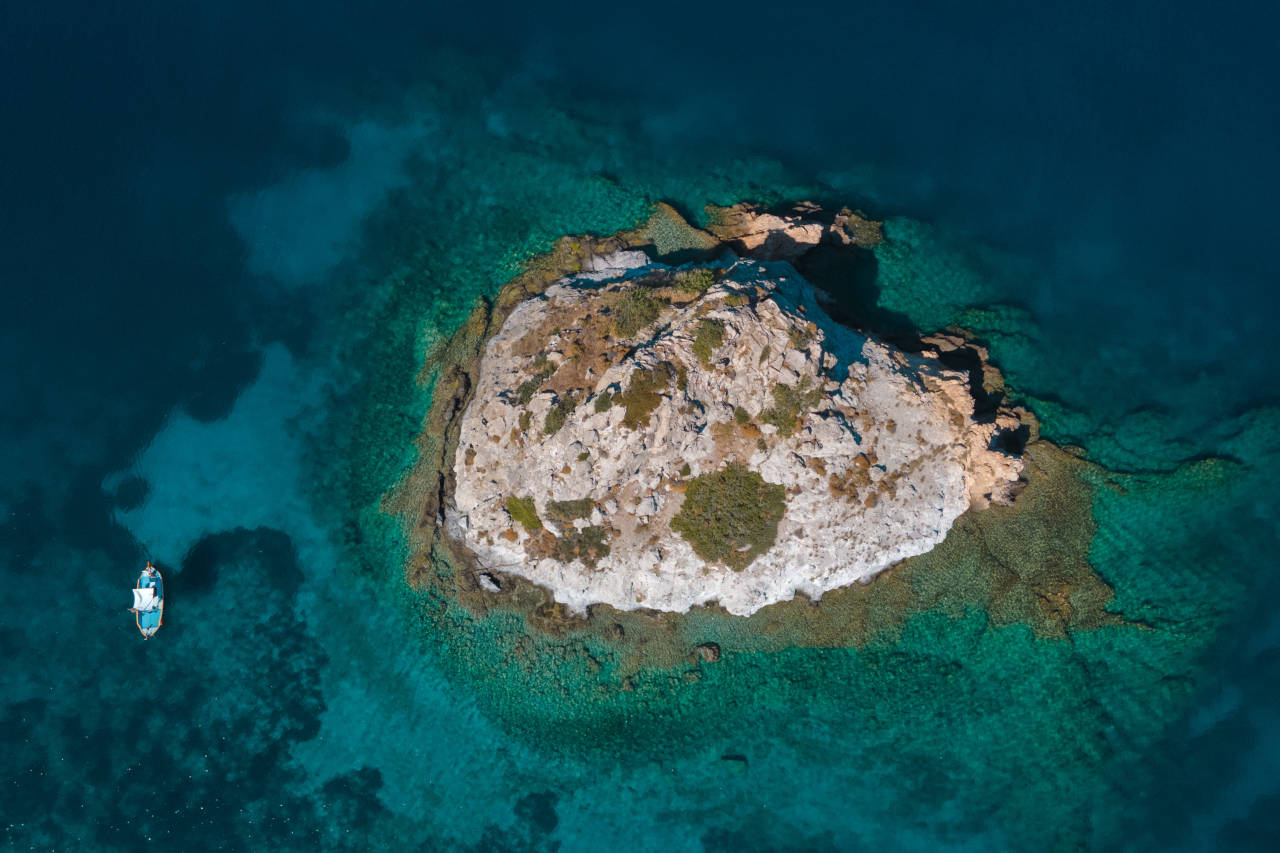
What are the mooring fees in Greece.
The mooring fees for yachts in Greece can vary depending on several factors, including the location, the size of the yacht, the season, the type of mooring (marina, port, or anchorage), and the facilities available. Here's a general overview:
- **Marinas:** Mooring fees at marinas can vary significantly based on the marina's facilities, location, and popularity. In popular tourist areas or larger cities like Athens or Corfu, marina fees tend to be higher. Fees can range from around €50 to €150 or more per night for a 40-foot yacht.
- **Ports and Harbors:** Port fees might be charged based on the size of the boat and the duration of stay. Charges can vary between €10 to €50 per night for a smaller yacht, depending on the location.
- **Anchoring:** Anchoring in bays or along the coastline can sometimes be free, but in certain designated anchorages or spots with mooring buoys, fees might apply. These fees could range from €10 to €30 or more per night for smaller boats.
- **Seasonal Variations:** During the high season, typically from mid-June to early September, mooring fees tend to be higher due to increased demand. In the shoulder season or off-peak times, fees might be lower.
- **Additional Costs:** Some marinas or ports might charge for extra services such as electricity, water, Wi-Fi, showers, and facilities like waste disposal. These additional services could add to the overall mooring costs.
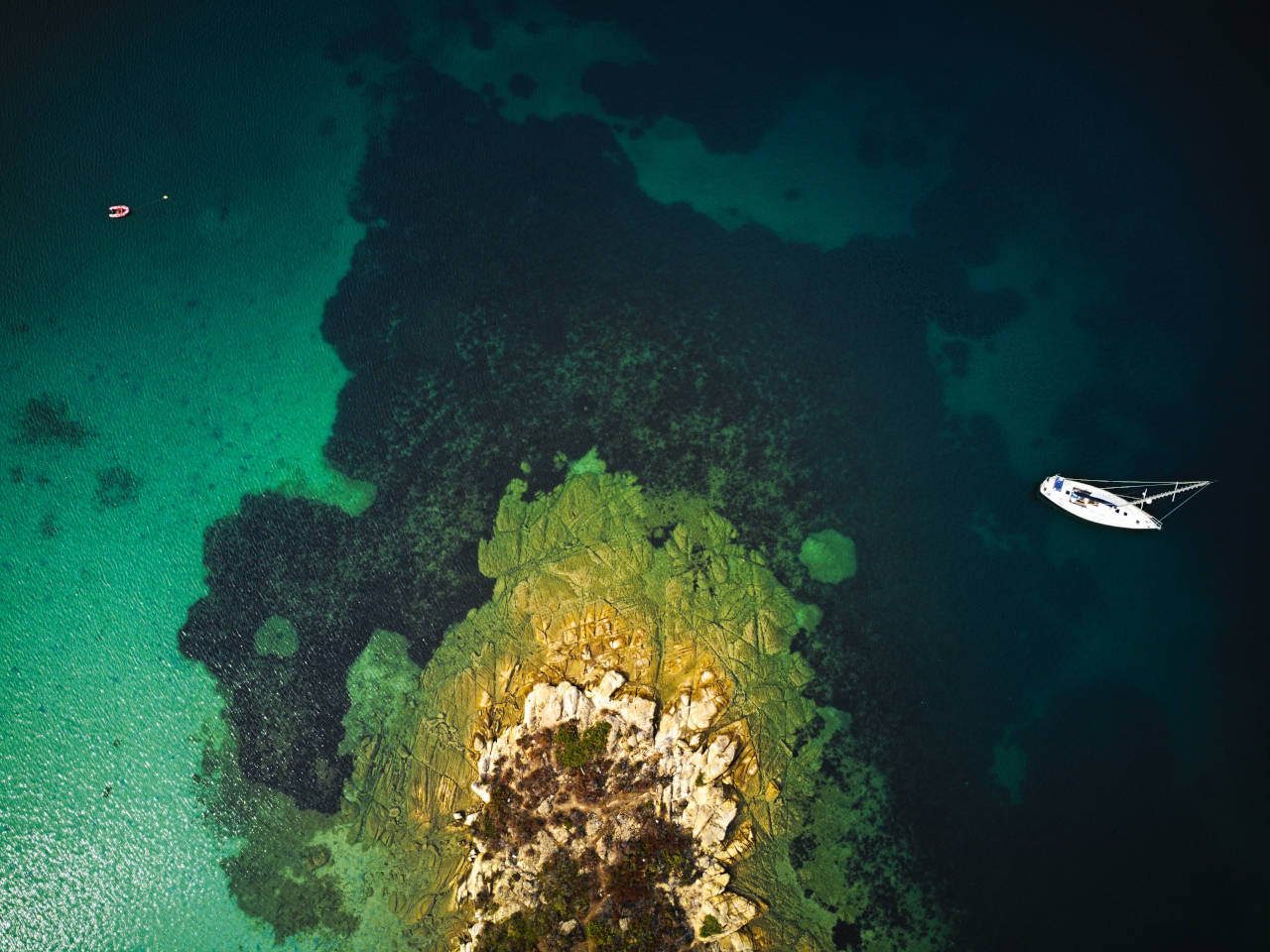
It's essential to check with specific marinas, ports, or local authorities to get updated information on mooring fees and any additional charges. Some larger marinas or ports might have websites or online booking systems where you can find detailed pricing information or make reservations in advance.
Additionally, many islands in Greece offer various options for anchoring in more remote or less developed areas, where mooring might be free or significantly cheaper. However, it's crucial to respect local regulations and environmental guidelines while anchoring in such areas.
Overall, the costs of mooring a yacht in Greece can vary widely, so it's advisable to plan your route and budget accordingly, taking into account potential mooring fees at different locations along your sailing journey.
Sailing in Greece is an irresistible experience for travelers and sailing enthusiasts. With its warm Mediterranean climate and blue skies all year round, Greece is a paradise for sailors.

